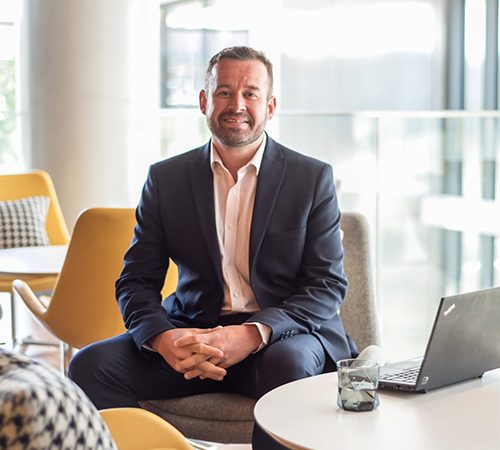
Helping business navigate the dual storms of COVID and Brexit was a challenge and a privilege
When the Strategic Economic Plan was first introduced by the North East LEP in 2014, no one could have foreseen the UK’s forthcoming exit from Europe – or the fact a global COVID pandemic would hit in 2020, needing simultaneous management by the Business Growth team. The LEP’s unique position between the business community and government placed our role very visibly to the fore. By Colin Bell, Business Growth Director.
Panic. In the early days of the Coronavirus pandemic there was panic everywhere, partly because of the threat to life, to business and fear of the unknown. At the North East LEP we knew how much the business community, more than ever, was going to need our support.
We used the panic to galvanise action. In the first instance, we concentrated on figuring out a remote provision. We immediately introduced a cloud-based phone system and video conferencing and before long we had an infrastructure allowing us to operate and respond as needed.
People were ringing up crying because they were going to lose everything. What was important then was how we coordinated as a Growth Hub network nationally to gather intelligence across the ecosystem and fed that evidence into government so they could rapidly respond to this quickly evolving environment.
We worked round the clock to gather data and get it to the right people. This included weekly reporting that fed into COBRA. Each week we were seeing responses from government based on the data we’d shared. It was a relief to see interventions like CBILS, the Coronavirus Job Retention Scheme, Bounce Back Loan Scheme and other provisions come to life to counter the issues facing business owners, as each one was announced.
Every day required a highly agile, adaptive way of working. Our focus had to be on creating a framework of support based on what the business community needed because the standard provision couldn’t meet people’s needs.
We rapidly developed a plan and where support providers needed to deviate from the norm, we engaged with their funders to ensure this wouldn’t become problematic. As soon as we could, we doubled the number within the Business Growth team.
Securing over £7m of funding allowed us to breathe out for a short moment but even this was problematic. The money needed to be reallocated as grants for businesses to ensure they could continue to operate throughout the restrictions. To make the allocation fair we introduced funding rounds. Of course not everyone was successful and the need was so great, the website went down.
Regular communication was a priority and I found myself on BBC Radio Newcastle every week providing an update.
To complicate things further, the UK’s exit from Europe was well underway. At the Growth Hub, we knew businesses had woefully little time due to the deal being agreed so late.
Our answer to this unique combination of events was the introduction of a hugely successful virtual peer networks programme which drew money into the region and pulled companies together online to discuss challenges faced. Members of each Peer Network were able to put forward questions and issues and work with each other to develop practical solutions.
To complement this, we offered one-to-one support and guided businesses through the latest government support available to them as part of the COVID-19 recovery package.
This Peer Network programme led to 34 sector-specific networks being formed in the North East, catering for businesses in a range of areas, from leisure and hospitality to advanced manufacturing.
Looking back now, the majority of support was as much about mental resilience as business resilience. I know I speak for the whole of the Business Growth team in saying that while helping businesses navigate the dual storms of COVID and Brexit was a challenge, above all it was first and foremost a real privilege.
